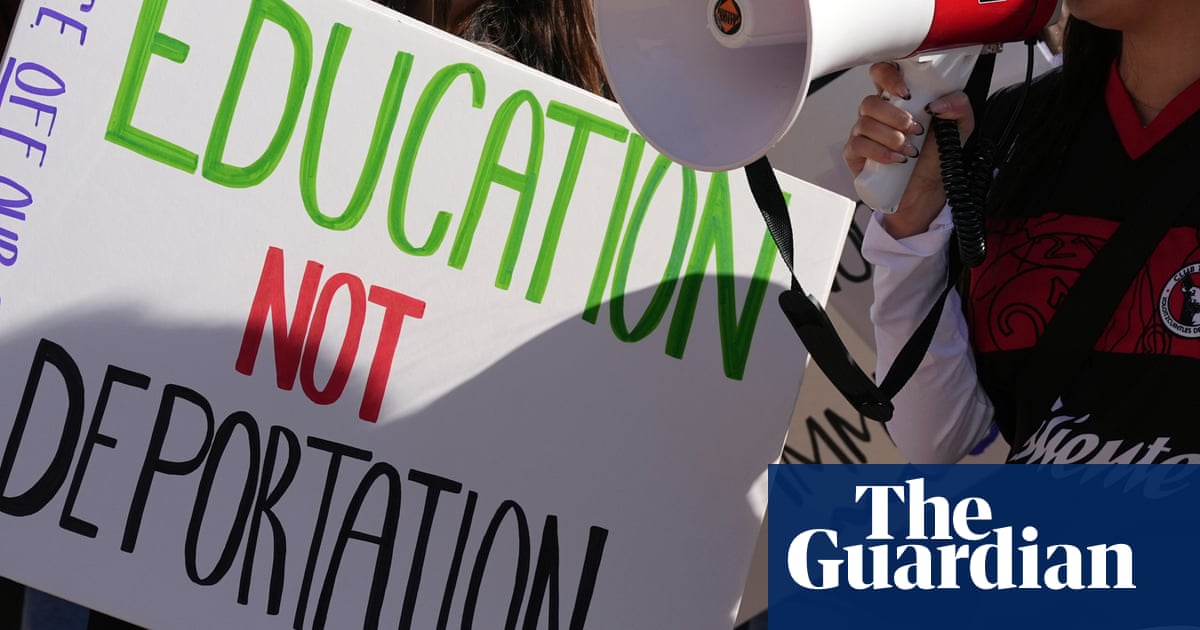Enfeebling universities or seizing control is an early chapter in the authoritarian playbook, studied eagerly by the likes of Viktor Orbán in Hungary. “Would-be authoritarians and one-party states centrally target universities with the aim of restricting dissent,” Jason Stanley, a scholar of fascism at Yale, wrote in the Guardian in September. Last month, he announced that he was leaving the US for Canada because of the political climate and particularly the battle over higher education.
It is not merely that universities are often bastions of liberal attitudes and hotbeds for protest. They also constitute one of the critical institutions of civil society; they are a bulwark of democracy. The Trump administration is taking on judges, lawyers, NGOs and the media: it would be astonishing if universities were not on the list. They embody the importance of knowledge, rationality and independent thought.
In a typically brazen reversal, Donald Trump has accused his administration’s top target – Harvard – of being the “threat to democracy”. The administration is attacking diversity, equity and inclusion efforts and says it is tackling the failure of universities to root out antisemitism – a claim widely challenged. Most Trump supporters are unlikely to take issue with cutting billions of dollars of public spending on wealthy elite institutions. A pragmatic counter-argument would be that much of that money goes to scientific and medical research that will enrich the US as a nation and benefit vast numbers of people who have never ventured near an Ivy League university.
The administration’s outrageous demands of Harvard include federal oversight of admissions, the dismantling of diversity programmes, an end to recruitment of international students “hostile to American values”, and the compelled hiring of “viewpoint diverse” staff.
Harvard has commendably chosen to fight back. “The University will not surrender its independence or relinquish its constitutional rights,” wrote its president, Alan Garber. It is suing the government over the freeze on $2.2bn in federal funding, part of a threat to withhold $9bn. That is encouraging others to speak out. Over 150 university presidents have signed a joint letter denouncing “unprecedented government overreach and political interference”.
Many have pointed out that the world’s richest university can afford to stand firm thanks to its unrivalled $53bn endowment and sympathetic billionaire alumni. But its the same prestige and power that have surely made it the primary target: force it to fold, and weaker institutions will follow. It’s worth noting that Harvard toughened its position after faculty, students and alumni pushed hard for it to do so, warning that concessions would only encourage the administration. Columbia acquiesced to an extraordinary list of demands but $400m of withheld funding has yet to be restored, and the administration is reportedly seeking to extend control over the university.
Whatever comes of Harvard’s suit, this is an administration that has already chosen to ignore court rulings. It may step up its assault, by revoking charitable status and clamping down on international students. (Many may already be concluding that studying in the US, however eminent the institution, may not be worth the hostile immigration environment.) But Harvard is fighting back not just because it can, but because it must. In doing so, it is defending not only academic freedom, but democracy more broadly – and inspiring others to do so.
Do you have an opinion on the issues raised in this article? If you would like to submit a response of up to 300 words by email to be considered for publication in our letters section, please click here.

 6 hours ago
6
6 hours ago
6













































